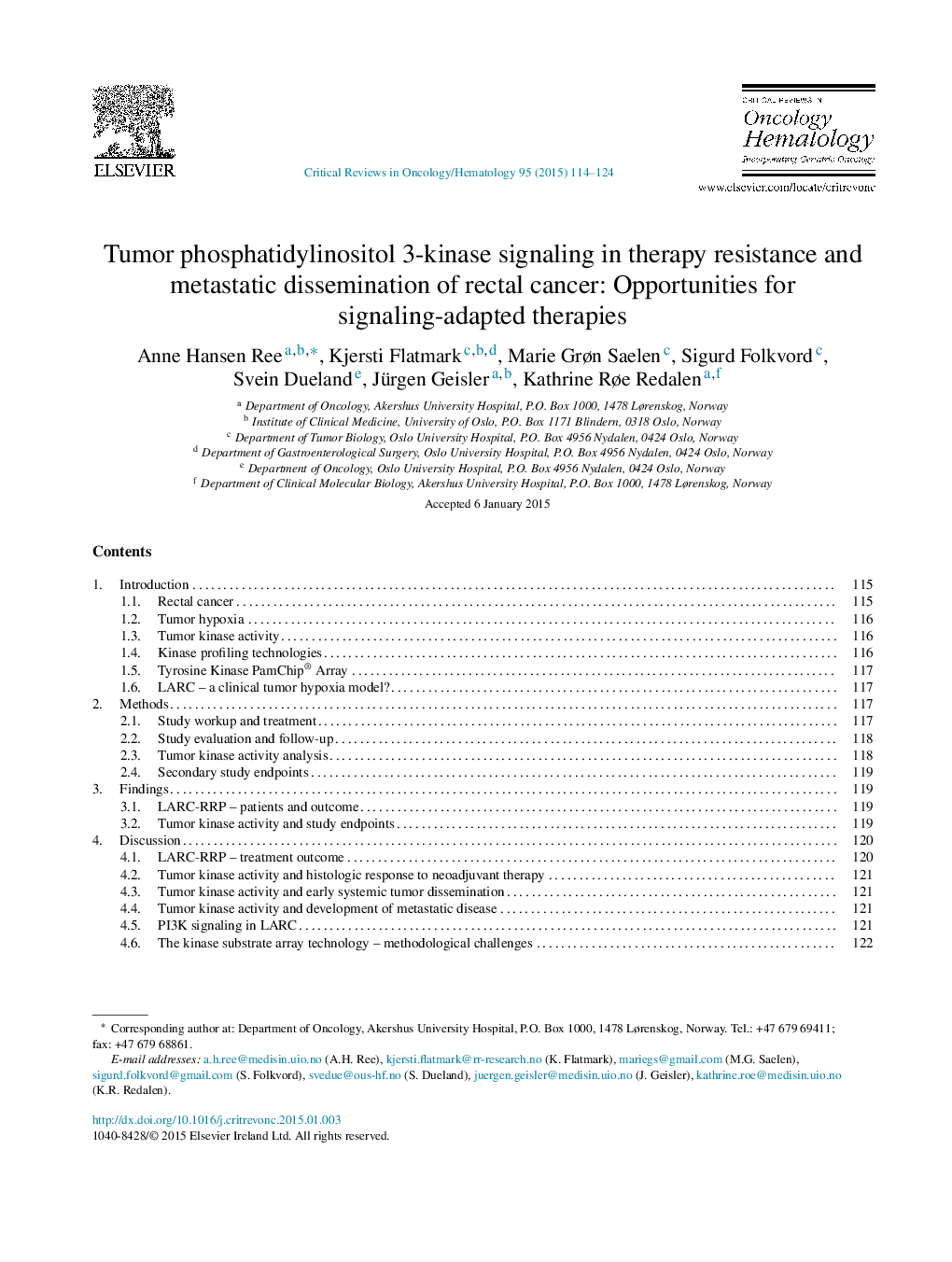| Article ID | Journal | Published Year | Pages | File Type |
|---|---|---|---|---|
| 3328617 | Critical Reviews in Oncology/Hematology | 2015 | 11 Pages |
•Biomarkers of treatment failure were quested in a prospective rectal cancer study.•A kinase substrate array technology was applied to analyze patients’ tumor samples.•High tumor PI3K signaling was correlated with adverse survival outcome.•The specific tumor signature of PI3K signaling points to actionable therapy targets.
Locally advanced rectal cancer (LARC) comprises heterogeneous tumors with predominant hypoxic components, a hallmark of the tumor microenvironment and determinant of resistance to cytotoxic therapies, local recurrence, and metastatic progression. A rational integration of molecularly targeted agents in established combined-modality treatment regimens may improve local and systemic disease control, but will require a clear definition of functional biomarkers for patient stratification. In a prospective study of LARC patients given neoadjuvant chemotherapy and radiation, we applied a kinase substrate array technology to analyze the patients’ tumor biopsies sampled at the time of diagnosis, and observed that receptor tyrosine kinase activities integrated by high phosphatidylinositol 3-kinase signaling were correlated both with poor tumor response to the neoadjuvant treatment and adverse progression-free survival. Conceptually, the specific tumor signature of phosphatidylinositol 3-kinase signaling activity may point to actionable therapy targets in LARC patients with unfavorable disease features. Clinical trial registration number NCT00278694.
